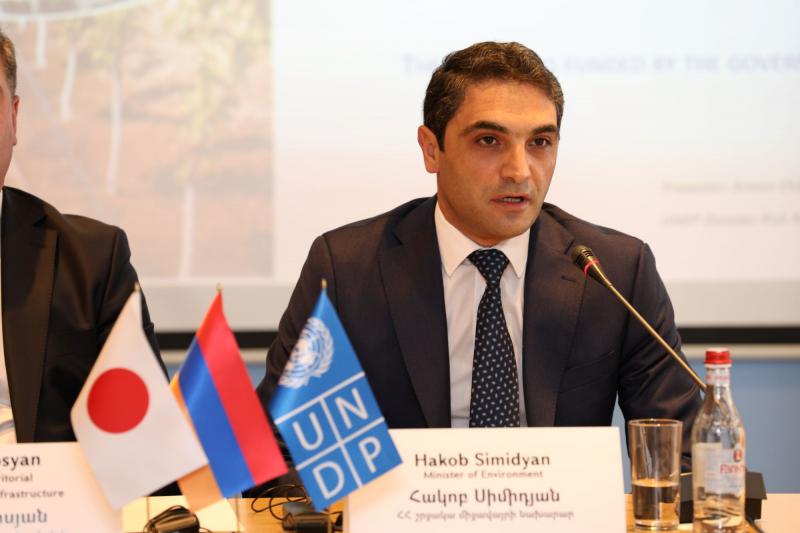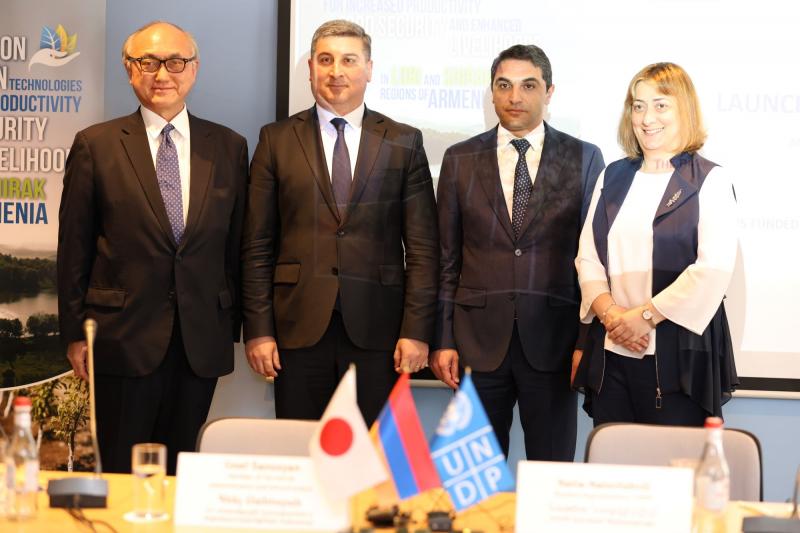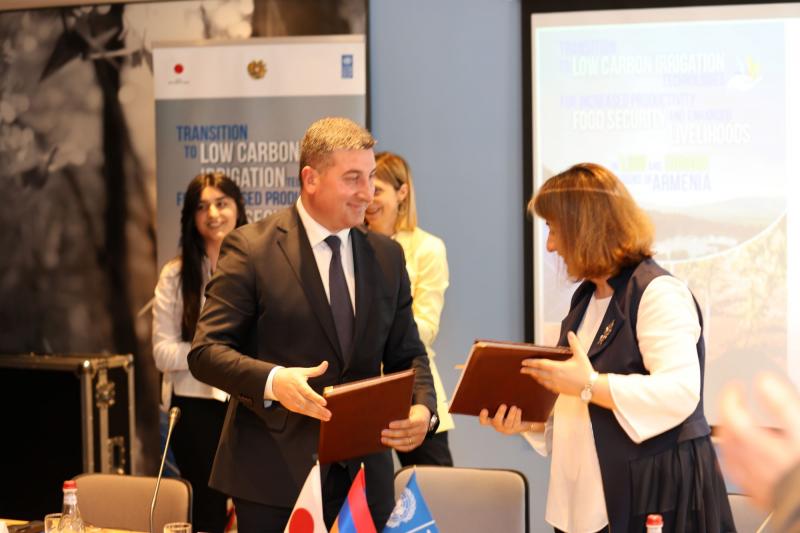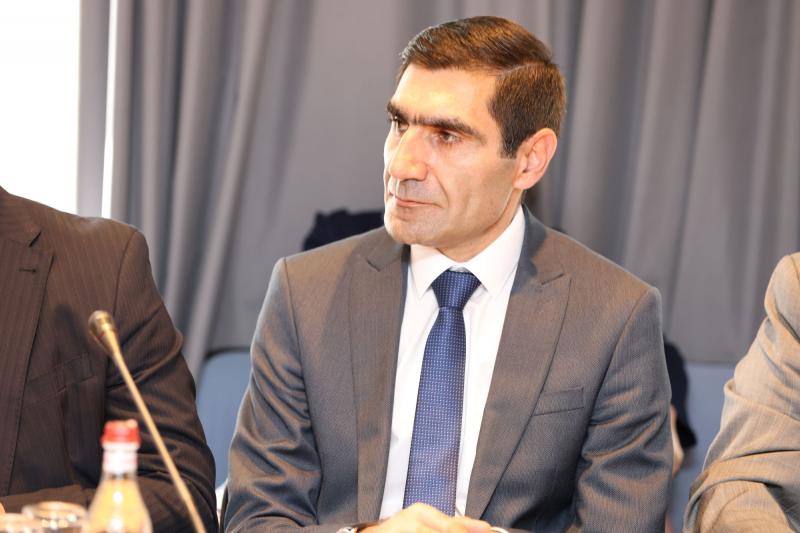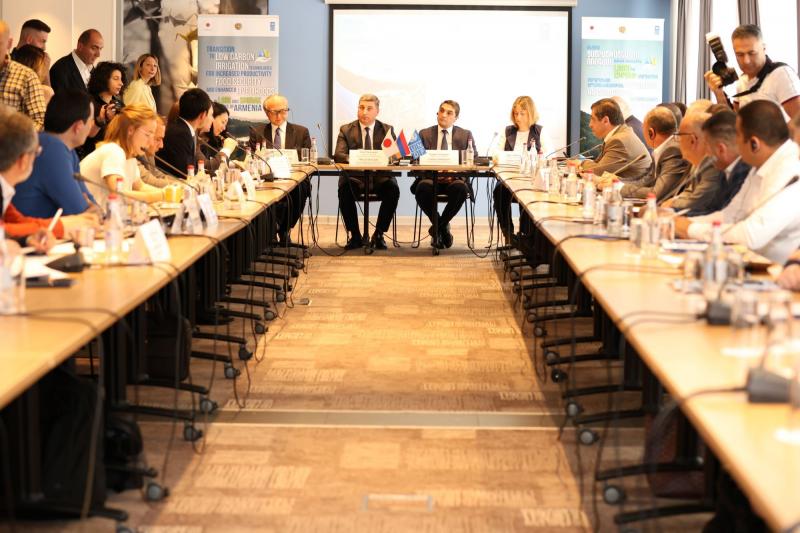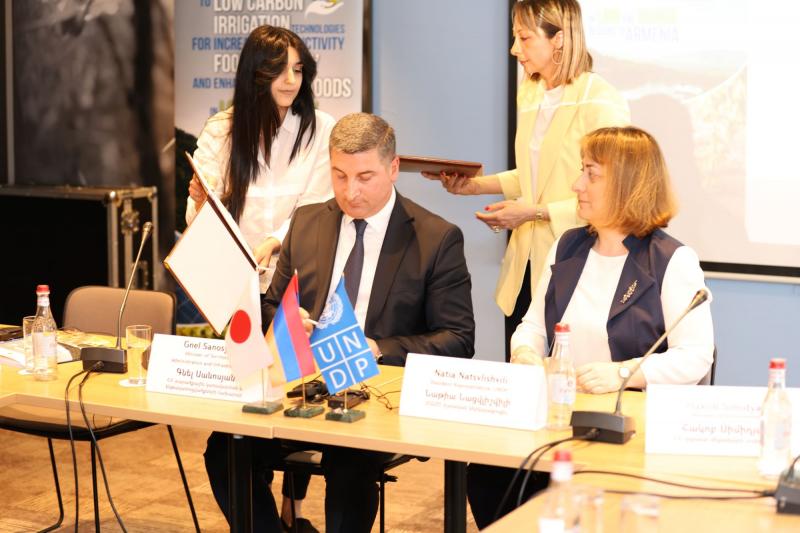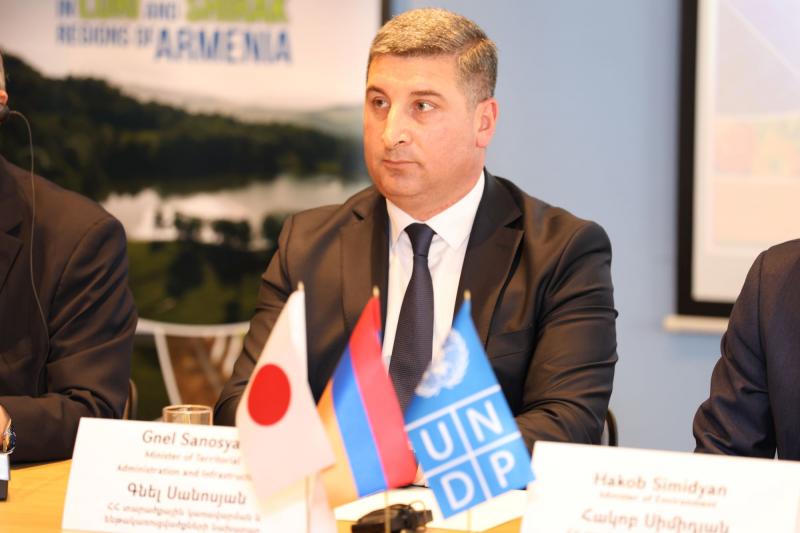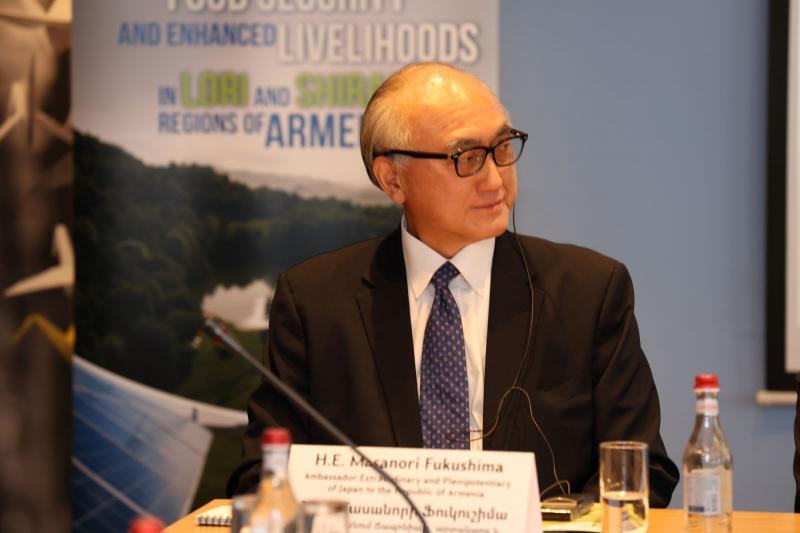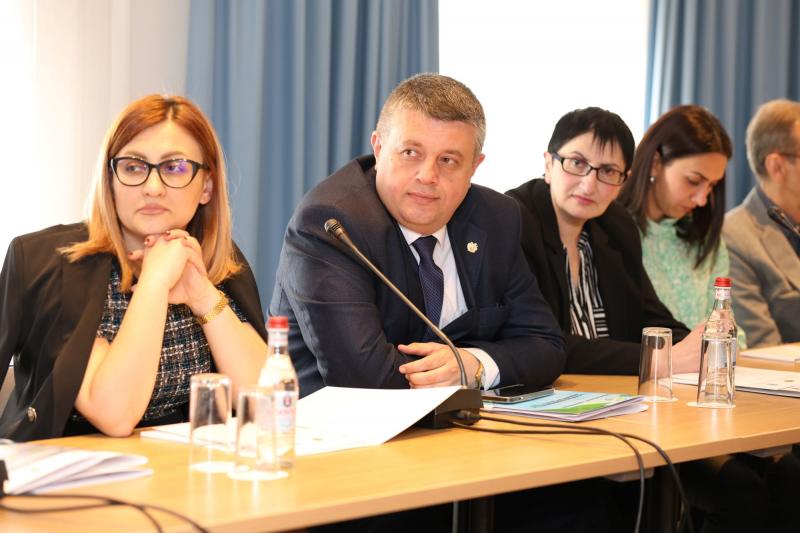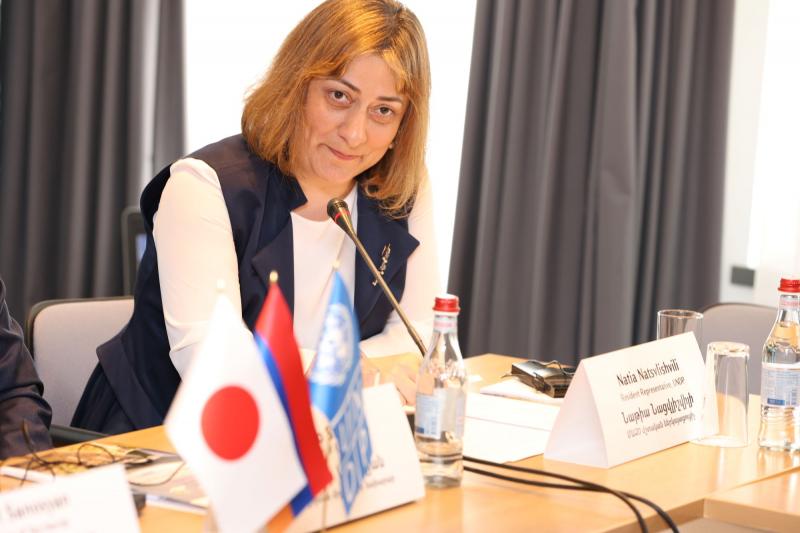Within the framework of the new UNDP program, the irrigated lands will increase in Shirak and Lori regions.
The presentation of the project "Transition to low-carbon irrigation technologies in Lori and Shirak marzes of Armenia for increasing productivity, improving food security and living standards" was held, which is financed by the Government of Japan and implemented jointly by the United Nations Development Program (UNDP) and the Territorial Administration and Infrastructure of Armenia. by the Ministry.
The purpose of the project is to support Armenia's "2021-2030" under the Paris Agreement of the United Nations Framework Convention on Climate Change. The implementation of Nationally Determined Contributions, within the framework of which it is planned to reduce carbon dioxide emissions from the use of energy for irrigation of agricultural lands in Lori and Shirak regions, support sustainable agriculture and increase irrigated land areas, which will contribute to more resilient agriculture in the changing climate and increasing the level of food security.
The project will also support the Armenian government in improving the water resources management system in Shirak and Lori regions.
The participants of the event were welcomed by Minister of Environment Hakob Simidyan, Minister of Territorial Administration and Infrastructure of Armenia Gnel Sanosyan, Ambassador Extraordinary and Plenipotentiary of Japan to Armenia Masanori Fukushima, and UNDP Resident Representative in Armenia Natia Natsvlishvili.
In his speech, Minister Hakob Simidyan emphasized the short-term, fast and effective programs implemented with the support of the Japanese government, reminding of the ones that started in 2022 and are already in the final stage of the RA government, in particular, implemented jointly with the Ministries of Environment, Emergency Situations, Territorial Management and Infrastructures and by the Japanese government. funded "Support to national investments aimed at climate risk resilience in Armenia" program. As a result of the implementation of the project, the "Hydrometeorology and Monitoring Center" SNCO of the Ministry of Education and Culture was equipped with new automated weather forecasting stations, it was an incentive for the RA Government to allocate funds and soon we will have a modernized forecasting system throughout the country.
The minister also referred to the important solutions offered by the project starting today and its environmental result, particularly the effective management of water resources.
The positive experience and knowledge obtained as a result of the implementation of the project will contribute to the modernization of irrigation systems, increase the volume of investment projects and the formation of a smart irrigation system in the country.
Beneficiaries of the project are the State Water Committee of the RA TKEN, water users' unions of Lori and Shirak regions. It is estimated that approximately 6,000 people will directly benefit from the results of the project, including farmers and their groups, local private organizations, local governments and regional authorities. The indirect beneficiaries of the project are about 30,000 people, about seven percent of the entire population of the target regions.
The livelihood of about 65 percent of the target population of Lori and Shirak marzes directly depends on agriculture. Without the application of innovative climate-smart agricultural practices, the risk of impoverishment of rural communities increases. Due to the lack of irrigation in these regions, about 45 percent of arable land remains uncultivated, including in areas with high agricultural potential. Due to the above reasons and lack of investment in water pumping infrastructure, only 25 percent of the previously irrigated arable land is used.
At the end of the project, the target "Ayrum-Chochkan" and "Chochkan" two-stage pumping stations operating in Lori marz and the "Benyamin" pumping station operating in Shirak region will be upgraded with energy-efficient pumps and grid-connected photovoltaic plants. Target groups will also have centralized Geographic Information System-based information, climate change risks on agriculture will be reduced, and the professional and institutional capacity of the State Water Committee and other relevant stakeholders will be improved.


